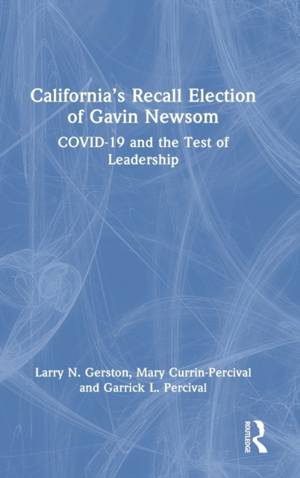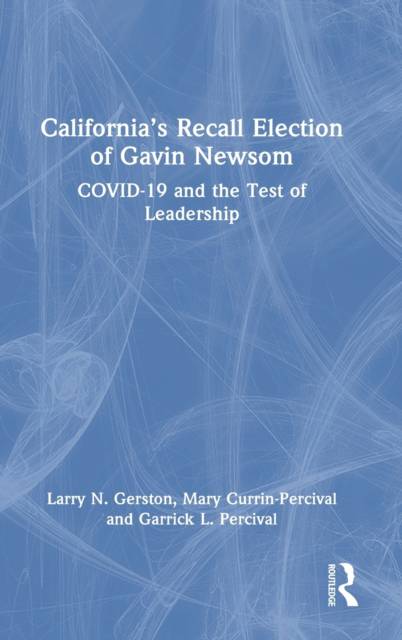
- Afhalen na 1 uur in een winkel met voorraad
- In januari gratis thuislevering in België
- Ruim aanbod met 7 miljoen producten
- Afhalen na 1 uur in een winkel met voorraad
- In januari gratis thuislevering in België
- Ruim aanbod met 7 miljoen producten
California's Recall Election of Gavin Newsom
Covid-19 and the Test of Leadership
Larry N Gerston, Mary Currin-Percival, Garrick L PercivalOmschrijving
California went through a political earthquake of sorts when the state recalled Governor Gray Davis in 2003. In 2021, the state faced another political turning point with the threatened recall of Governor Gavin Newsom. Less than two years after Newsom's overwhelming election victory, more than two million Californians signed on to the recall effort, hoping to expel him from office in a special election. How could such a monumental turnabout be possible? Normally, the political headwinds would be much too strong for a movement to oust a governor who had decisively vanquished his opponent. But--with the COVID-19 pandemic dominating every aspect of society, including politics--these weren't normal times. Organizing a recall election is a demanding enterprise: it takes abundant political energy, tremendous amounts of anger with the status quo, and mounds of money. Yet, for the second time in less than two decades, such wheels were set in motion. What is it that makes California so dynamic yet so fragile? This book explains that paradox and, in the process, enlightens readers about the recall process, the challenges of federalism, and the pitfalls of direct democracy. It examines the underlying conditions that expose a state with poorly linked institutions, a bitterly divided society, and a governor who had to act under nearly impossible conditions, demonstrating his strengths and vulnerabilities along the way. It's a story that could happen only in California, a state with a history of "only" stories.
Designed to be useful in a variety of college courses, this book is the first to unveil the Newsom backstory and will appeal to pundits and politicos as well as interested general readers.
Specificaties
Betrokkenen
- Auteur(s):
- Uitgeverij:
Inhoud
- Aantal bladzijden:
- 158
- Taal:
- Engels
Eigenschappen
- Productcode (EAN):
- 9781032109695
- Verschijningsdatum:
- 2/08/2022
- Uitvoering:
- Hardcover
- Formaat:
- Genaaid
- Afmetingen:
- 152 mm x 229 mm
- Gewicht:
- 403 g

Alleen bij Standaard Boekhandel
Beoordelingen
We publiceren alleen reviews die voldoen aan de voorwaarden voor reviews. Bekijk onze voorwaarden voor reviews.









